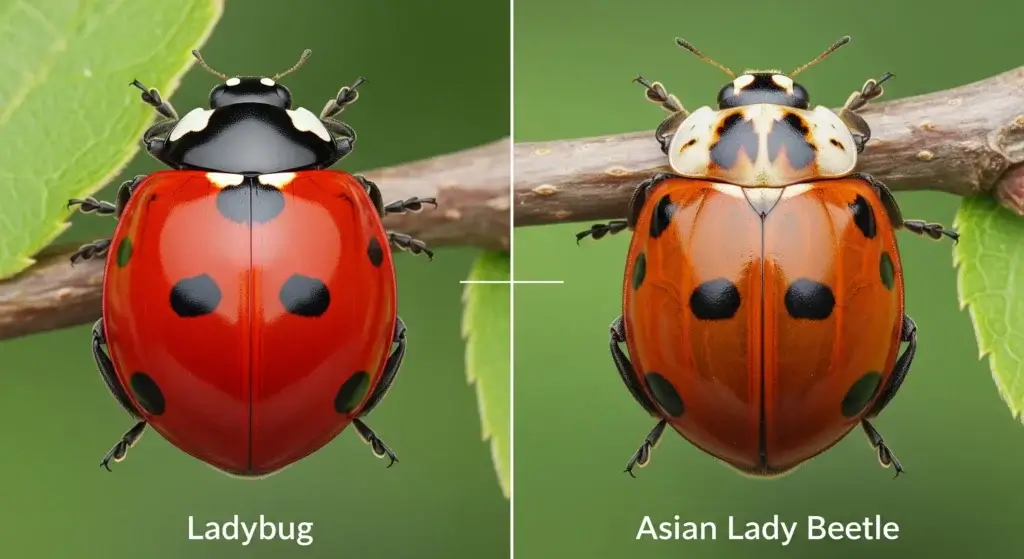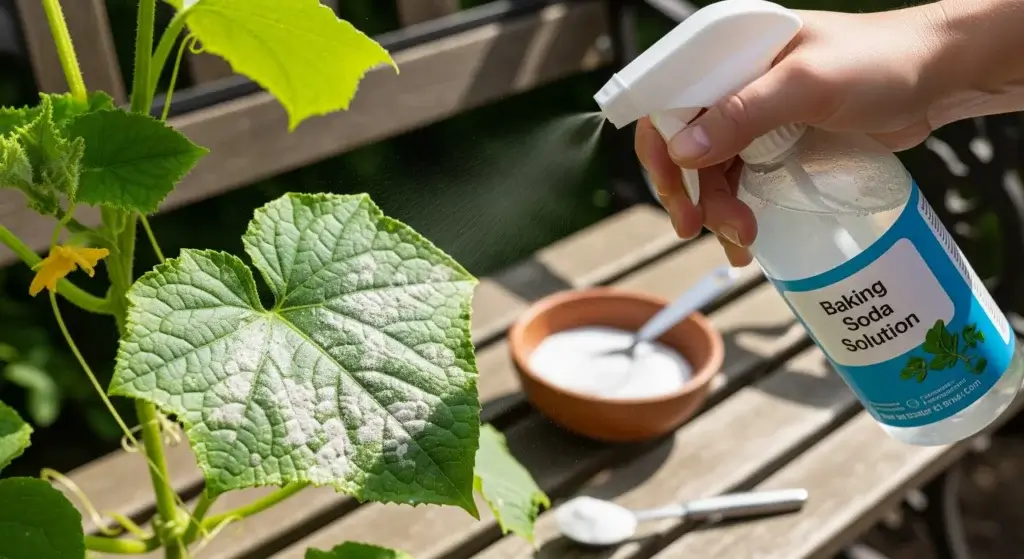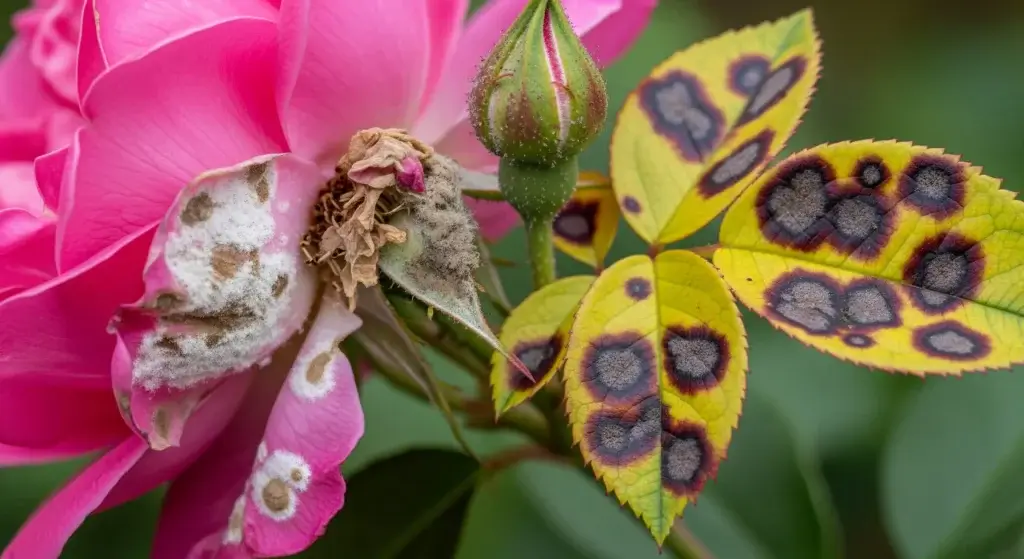
Dealing with aphids, those troublesome pests that can harm your rose bushes requires a strategic approach.
Recognize the signs of their presence, such as stunted growth, curled leaves, and the telltale sticky residue known as honeydew.
Thankfully, numerous natural and effective methods can help you regain control.
Here are some user-friendly tips to identify and eliminate aphids, ensuring the health and beauty of your roses.
Identifying the Aphid Threat
Vigilance is your best defense against aphids, those tiny yet troublesome pests that can harm your rose bushes.
Here’s a simple and effective approach to identify and address the aphid threat:
- Read also: Ladybugs for Effective Aphid Control
- Read also: Flowers for Vegetable Garden Pest Control
Keep an eye out
Make it a habit to inspect your rose bushes regularly, focusing on key areas such as the undersides of leaves and new growth.
Aphids often gather in colonies in these vulnerable spots.
By staying vigilant, you can catch signs of infestation early, preventing potential damage to your roses.
Look for the signs
Be attuned to the indicators of an aphid presence.
Keep an eye on leaves for any unusual curling, as this is a common manifestation of aphid activity.
Additionally, watch for stunted growth in your rose bushes, as aphids can impede proper development.
If you notice a sticky substance called honeydew on the leaves, it’s a clear sign of aphids, as they secrete this substance as they feed.
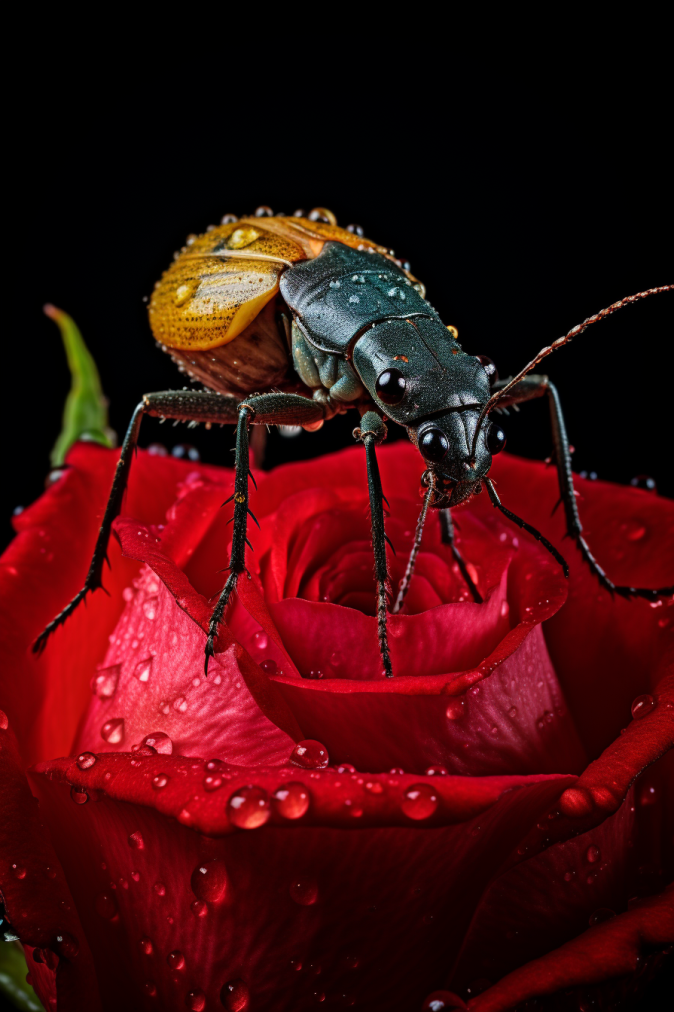
What are The Signs of an Aphid Infestation on Roses?
Presence of aphids
Aphids come in various colors, including green, pink, black, or white.
Despite their small size, they are visible to the naked eye.
Look for them congregating at the tips of shoots and flower heads, where they feed on the sap of plants.
The proximity of aphids to each other is a notable characteristic of their presence.
Curled or shriveled leaves
Aphids can cause visible changes in the leaves of your roses.
Look for curling, shriveling, wilting, or changes in color.
Aphids feed on the sap within the leaves, leading to these deformations.
Stunted or misshapen foliage growth
Infestations of aphids can result in abnormal growth patterns in your rose bushes.
The presence of these pests may cause stunted or misshapen foliage as the plants struggle to thrive under aphid infestation.
Buds and blooms are less vigorous
Aphids can negatively impact the growth and development of rose buds and blooms.
Inspect your roses for signs of less vigorous budding or blooming, which may indicate the influence of aphid feeding.
Sticky or shiny leaves
Aphids secrete a sweet, sticky substance known as honeydew.
This sticky residue may make the leaves of your roses appear shiny.
Additionally, the honeydew can lead to the development of sooty, black fungus on the leaves, hindering the penetration of light and potentially compromising the health of your plants.
Increased occurrence of ants
Ants are often attracted to aphids.
They protect aphids from predators and encourage them to produce more honeydew.
If you notice an increased presence of ants around your roses, it may indicate an aphid infestation.
Patches of black sooty mold
The secretions from aphids, particularly honeydew, can foster the growth of black sooty mold on leaves, buds, or stems.
This mold not only affects the appearance of your roses but can also impede photosynthesis.
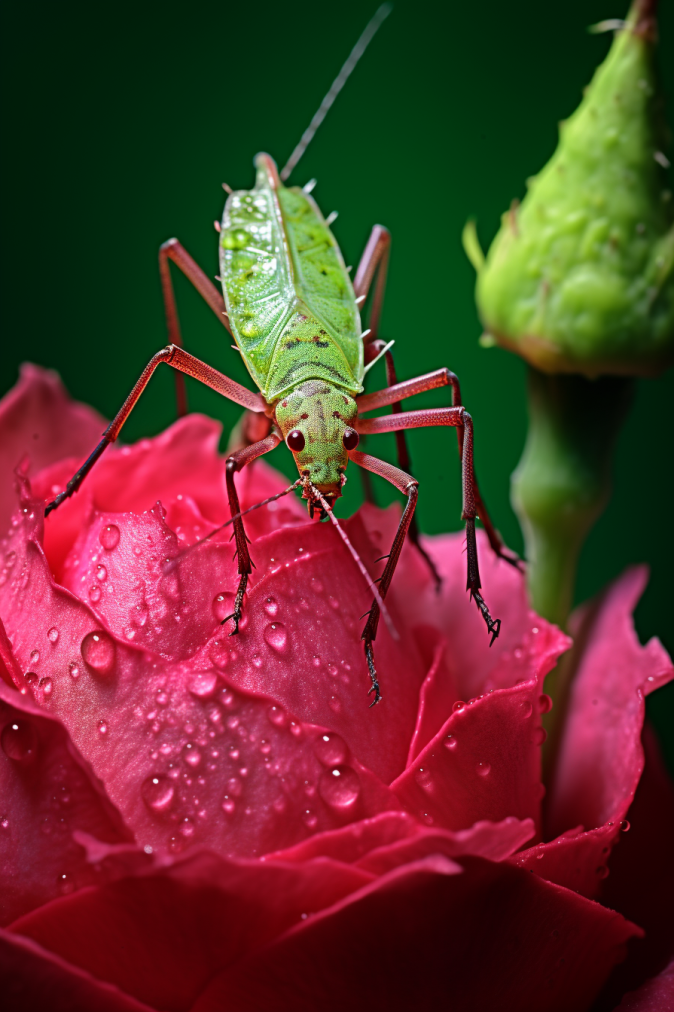
Natural Aphid Predators
One of the most effective ways to control aphids on roses is to attract natural predators that feed on them.
Here are some beneficial insects that can help:
Ladybugs
Ladybugs, those cheerful and vibrant beetles, are voracious aphid hunters.
To welcome these garden heroes, consider planting dill, fennel, or yarrow near your roses.
These aromatic herbs not only appeal to the human senses but also attract ladybugs, creating a natural and harmonious balance in your garden.
Lacewings
The delicate larvae of lacewings are avid aphid devourers.
Create a welcoming environment for lacewings by planting flowering herbs such as cilantro or angelica.
These herbs provide the shelter and sustenance needed for lacewings to thrive.
Once established, these delicate guardians contribute to an eco-friendly pest control system in your garden.
Hoverflies
Hoverflies, with their fly-like appearance, play a vital role in aphid control.
They lay eggs near aphid colonies, and when the larvae hatch, they feast on the unsuspecting pests.
Attract hoverflies by planting flowering plants like alyssum or cosmos.
These blooms act as irresistible invitations, encouraging hoverflies to take residence and contribute to the health of your rose bushes.
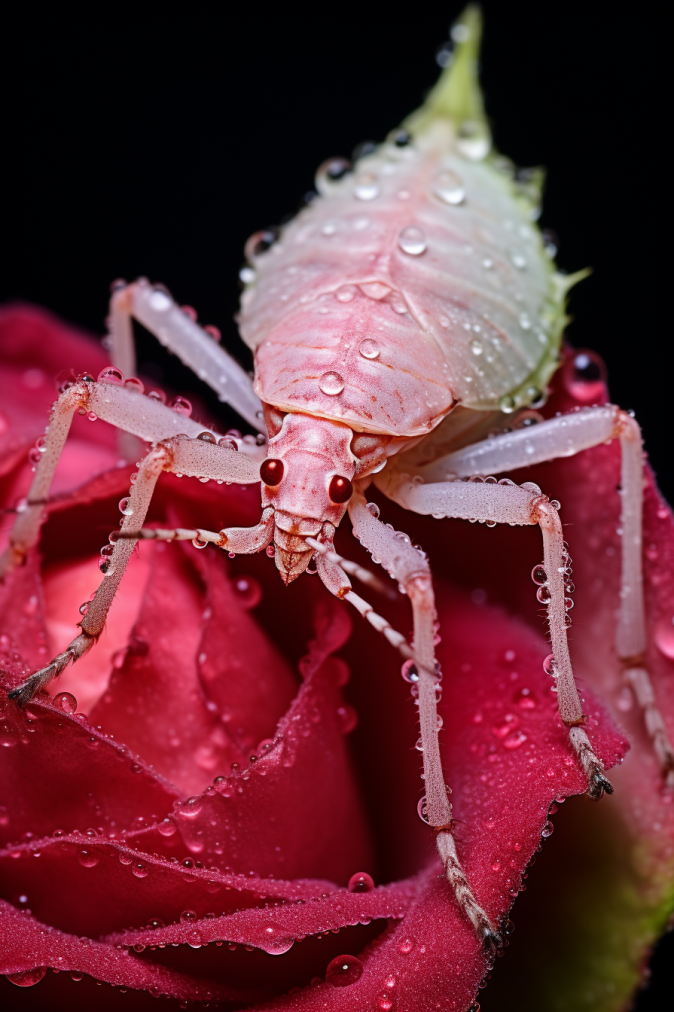
DIY Aphid Sprays
If natural predators are not enough, you can use DIY aphid sprays to control the infestation.
Here are some effective solutions:
Soapy water
This straightforward yet highly effective solution disrupts aphids’ breathing, compelling them to make a hasty retreat.
To prepare, mix a few drops of mild dish soap with water.
Pour the soapy water into a spray bottle and aim directly at the aphids.
Ensure thorough coverage to maximize the spray’s effectiveness.
This method is gentle on your roses and a simple yet powerful way to address the aphid challenge.
Neem oil spray
Derived from the neem tree, neem oil serves as a natural insecticide that effectively controls aphids without harming beneficial insects.
Check the product label for specific instructions on dilution and application.
Typically, you’ll mix neem oil with water and apply it directly to your roses.
This method not only tackles the current infestation but also acts as a preventive measure, keeping aphids at bay.
Garlic spray
Harnessing the pungent power of garlic, this DIY spray serves as a natural deterrent for aphids.
To create the solution, blend a few cloves of garlic with water, then strain the mixture to remove solid particles.
Transfer the liquid to a spray bottle and generously apply it to your rose bushes.
The strong odor repels aphids without causing harm to your plants.
This method is a great addition to your arsenal of aphid control measures, providing a holistic and aromatic solution.
Cultural Controls
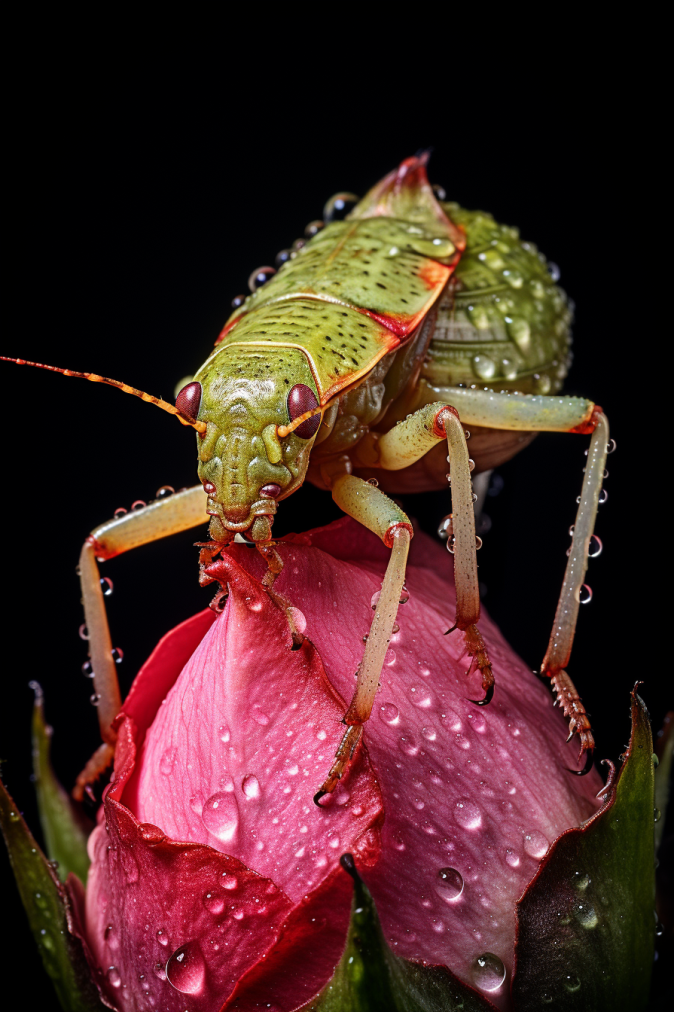
In addition to natural predators and DIY sprays, there are several cultural controls you can use to prevent and control aphids on roses.
Here are some tips:
Hose them off
A simple yet powerful method, hosing off aphids with a strong stream of water can dislodge them from your rose bushes.
This physical removal disrupts their feeding and reproductive patterns.
To maximize effectiveness, repeat this process regularly until the aphid infestation is under control.
Pay extra attention to the undersides of leaves and along stems, as these are common aphid-gathering spots.
Deadhead spent blooms
Aphids are drawn to new growth, making spent blooms an attractive haven for these pests.
Regularly deadheading your roses – removing faded or spent flowers – not only promotes continuous blooming but also eliminates potential aphid shelters.
This cultural practice reduces the likelihood of aphid infestations, particularly during periods of active growth.
Dispose of deadheaded material to further discourage aphids from lingering around your roses.
Attract beneficial insects
Creating a garden environment that attracts beneficial insects is a strategic cultural control method.
Plant flowers are known to attract ladybugs, lacewings, and hoverflies.
These natural predators contribute to a robust pest-control system, keeping aphid populations in check.
Examples of such flowers include dill, fennel, yarrow, cilantro, angelica, alyssum, and cosmos.
By cultivating a diverse and insect-friendly garden, you establish a harmonious ecosystem that supports the well-being of your roses.
- Read also: Ladybugs for Garden Pest Control
- Read also: Natural Pest Control Methods for Your Vegetable Garden
Conclusion
In conclusion, controlling aphids on roses is essential to maintaining the health and beauty of your rose bushes.
By identifying the problem, attracting natural predators, using DIY sprays, and implementing cultural controls, you can effectively control aphids without harming beneficial insects or the environment.
FAQs
Aphids are small, soft-bodied insects that feed on the sap of plants, causing damage and stunting growth.
Curling leaves, stunted growth, and honeydew (a sticky substance aphids secrete) are telltale signs of an aphid infestation on roses.
Ladybugs, lacewings, and hoverflies are beneficial insects that feed on aphids and can help control their population.

